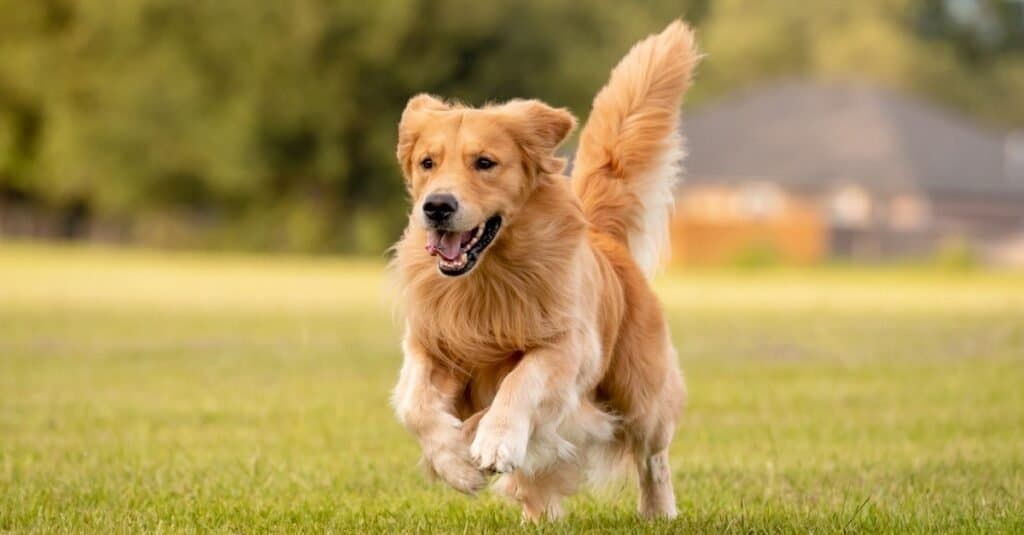
Introduction
Overview of Golden Retrievers
Golden Retrievers, renowned for their friendly disposition, intelligence, and unwavering loyalty, stand out as one of the most beloved dog breeds worldwide. These medium-to-large-sized dogs typically weigh between 55 to 75 pounds and have a height range of 21 to 24 inches. Their striking golden coats, characterized by a thick, water-repellent double layer, grant them an endearing appeal that many families adore. Golden Retrievers are compatible with young children and other pets, making them fantastic companions. Their playful and affectionate nature often leads owners to fondly refer to them as “Goldens.”
- Key Traits:
- Intelligent and easy to train
- Great with children and other pets
- Affectionate and eager to please
Growing up with a Golden Retriever often includes countless adventures, whether it’s playing fetch at the park or snuggling on the couch. Their joyful disposition can brighten even the gloomiest days, creating a strong bond between the dog and its owner.
Significance of Understanding Their Lifespan
Understanding the lifespan of Golden Retrievers, which averages between 10 to 12 years, is crucial for any potential or current owner. Knowing this allows individuals to prepare for their dog’s health needs throughout various life stages.
- Why it Matters:
- Awareness of common health issues helps in proactive care.
- Knowledge of their lifespan can assist in planning long-term care and companionship.
- Ensuring that proper nutrition, exercise, and regular vet check-ups are maintained can significantly enhance their quality of life.
As owners cherish their Goldens, understanding their lifespan and health can lead to fulfilling and joyful years together. By investing time and care into their dog’s well-being, owners can truly make every moment with their Golden Retriever golden.

Lifespan of Golden Retrievers
Average Lifespan
Golden Retrievers typically enjoy a lifespan of 10 to 12 years. While this may seem short in comparison to the lifespan of humans, it aligns well with the average expectancy for dog breeds of similar size. Knowing their expected lifespan allows owners to plan for their health and wellness as they age. Regular care and attention can significantly enhance these precious years with your furry companion.
Factors Influencing Lifespan
Several factors contribute to the lifespan of Golden Retrievers. Understanding these can empower owners to take proactive steps in ensuring their dogs lead long and healthy lives.
Genetics
Genetic predispositions play a crucial role in determining the overall health of Golden Retrievers. Unfortunately, poor breeding practices can lead to inherited health issues such as hip dysplasia, elbow dysplasia, and certain cancers. Opting for a reputable breeder who prioritizes genetic health screening can help reduce these risks and enhance the quality of life for your Golden.
Diet and Nutrition
A balanced diet plays a significant role in the health and longevity of a Golden Retriever. High-quality dog food that contains essential nutrients will support their growth and overall vitality. Owners should consult with veterinarians to tailor the diet based on age, weight, and activity level, ensuring that their pet remains healthy throughout their life.
Exercise and Activity Level
Golden Retrievers are energetic dogs that need ample exercise to maintain their health. A daily routine that includes at least an hour of physical activity—like walks, playtime, or interactive games—not only keeps them physically fit but also mentally stimulated. Regular exercise helps to prevent obesity and joint issues, enabling these lovable dogs to thrive well into their senior years.
By being attentive to genetics, nutrition, and exercise, owners can significantly enhance the well-being and longevity of their Golden Retrievers, making the most out of the time spent together.

Stages of a Golden Retriever’s Life
Puppy Stage (0-1 year)
The puppy stage is one of the most delightful periods in a Golden Retriever’s life, lasting from birth until about one year old. During this time, your little furball will undergo rapid growth and development, as well as essential socialization that shapes their temperament for life. It’s crucial to expose them to various stimuli, including people, other pets, and different environments.
- Key Considerations:
- Socialization: Introduce your puppy to new experiences to build confidence.
- Training: Start basic commands early; Golden Retrievers are eager to please and quick learners.
- Health: Regular veterinary visits for vaccinations and health checks are essential to ensure your puppy grows strong.
Personal anecdotes often reveal that this stage can be a whirlwind of joy as puppies explore their surroundings with boundless energy and curiosity. Owners often remember the first time their puppy successfully fetched a toy or quickly learned a command, a testament to their intelligence.
Adult Stage (1-7 years)
Entering the adult stage, Golden Retrievers mature both physically and behaviorally. This phase typically lasts from 1 to 7 years. They are full of energy and vitality, requiring regular exercise to keep them healthy both mentally and physically.
- Key Activities:
- Regular Exercise: Aim for at least an hour of daily physical activity—this could include walks, playtime, or swimming.
- Training: Continue reinforcing training with advanced commands and tricks.
- Social and Mental Stimulation: Engaging them with puzzle toys and interactive games is crucial for their mental health.
Many owners cherish this stage as they bond more deeply with their dogs, creating lasting memories of adventures together.
Senior Stage (7+ years)
As Golden Retrievers transition into their senior years, usually after 7, they may start to slow down. This stage brings new challenges, but with proper care, seniors can still enjoy their golden years vibrant and happy.
- Health Monitoring:
- Regular Vet Check-Ups: Keep up with health screenings to catch any potential issues early.
- Adjustments to Diet: Consider senior dog food to support their lower energy needs and prevent obesity.
- Comfort: Ensure their living environment has comfort-friendly amenities—like orthopedic beds or pet ramps.
Owners often find this stage bittersweet, filled with moments of reflection on their dog’s once-boundless energy, yet equally rewarding as they adapt their routines to provide the best quality of life. Fostering this new phase can lead to heartfelt connections as they still partake in activities suited to their senior status.
By understanding these stages of life, Golden Retriever owners can provide tailored care that enhances their furry companions’ well-being, ensuring a fulfilling life from puppyhood through their golden years.

Health Considerations
Common Health Issues
Golden Retrievers are generally known for being a healthy breed, with an average lifespan of 10 to 12 years. However, they can be predisposed to various health concerns due to genetics and breeding practices. Understanding these common health issues can empower owners to take proactive measures for their pets.
- Hip Dysplasia: This inherited condition affects the hip joints, often leading to pain and mobility issues. Symptoms include difficulty rising and reluctance to engage in play.
- Elbow Dysplasia: Similar to hip dysplasia, this condition is characterized by deformities in the elbow joint and can cause lameness.
- Hypothyroidism: This endocrine disorder can lead to symptoms such as weight gain, energy loss, and recurring ear infections.
- Skin Allergies: Golden Retrievers are prone to skin conditions like atopic dermatitis, which can cause itching and discomfort. Hot spots, areas of inflamed skin, are also common.
Being aware of these issues helps owners monitor their Golden’s health, ensuring they receive timely veterinary care when needed.
Tips for Promoting Longevity and Well-being
Aside from recognizing potential health concerns, there are several steps owners can take to promote their Golden Retriever’s longevity and overall well-being.
- Regular Check-Ups: Schedule annual veterinary visits to catch any health issues early and keep vaccinations up to date.
- Balanced Diet: Feed high-quality, age-appropriate food to maintain an optimal weight and support overall health. Avoid overfeeding, as obesity can exacerbate health problems.
- Exercise: Ensure daily physical activity and mental stimulation through walks, games, and interactive toys to keep them engaged and fit.
- Grooming: Regular grooming is essential for maintaining coat health and preventing matting, particularly in Golden Retrievers, who have thick double coats.
Creating a supportive and loving environment plays a crucial role in your Golden’s health and happiness. By focusing on these aspects, owners can help their furry friends thrive, making the most of their time together.

Quality of Life in Golden Retrievers
Ensuring Mental and Physical Stimulation
Golden Retrievers thrive on both physical activity and mental challenges. Providing adequate stimulation is crucial for their overall well-being and happiness. Without it, these intelligent and energetic dogs can become bored, leading to undesirable behaviors such as chewing or excessive barking.
- Activities to Consider:
- Daily Walks: Aim for at least an hour of exercise per day. Whether it’s a brisk walk, a run, or a playful game of fetch, regular outdoor activities keep your Golden fit.
- Puzzle Toys: These toys challenge your dog’s problem-solving skills and keep their minds engaged. Fill them with treats to encourage exploration.
- Training Sessions: Use positive reinforcement to teach new tricks or commands. Training not only strengthens your bond but also stimulates their brain.
Many owners share that initiating interactive playtime has significantly reduced behavior issues while enhancing their dog’s mental acuity.
Providing Proper Care and Attention for Overall Happiness
Beyond physical exercise and mental stimulation, Golden Retrievers require love, attention, and routine care to ensure a high quality of life. Being attentive to their needs creates a strong bond and contributes to their happiness.
- Routine Care Recommendations:
- Regular Grooming: With their thick double coats, Golden Retrievers shed quite a bit, making regular grooming vital. This not only maintains coat health but also provides moments for bonding.
- Socialization: Expose your dog to various environments, people, and other animals to nurture a confident temperament. Socialization is key to preventing anxiety in new situations.
- Healthy Nutrition: A balanced diet tailored to their age and activity level keeps them energetic and healthy. Owners should consult their veterinarians for optimal diet plans.
By incorporating these practices into daily life, owners can significantly improve their Golden Retriever’s quality of life, ensuring a fulfilling companionship full of joy and adventure. Ultimately, happy and healthy Goldens reflect the love and care invested in them.

Conclusion
Recap of Key Points
As we’ve explored, Golden Retrievers are among the most beloved dog breeds, cherished for their intelligence, loyalty, and friendly demeanor. Understanding their lifespan, which averages around 10 to 12 years, and being aware of potential health issues such as hip dysplasia, elbow dysplasia, and certain cancers is crucial for responsible ownership. Here are a few key points to remember:
- Health Monitoring: Regular veterinary check-ups and maintaining a balanced diet are essential for prolonging their life.
- Activity Level: Golden Retrievers require daily exercise to keep them physically fit and mentally stimulated. Activities like walking, fetching, and playing can help.
- Grooming Needs: With their thick double coats, Goldens need regular grooming to avoid matting and manage shedding.
By focusing on these aspects, owners can significantly improve their Golden’s quality of life and overall happiness.
Final Recommendations for Golden Retriever Owners
To foster a healthy and fulfilling partnership with your Golden Retriever, consider these final recommendations:
- Choose a Reputable Breeder: This is essential for reducing potential health issues in your puppy.
- Invest Time in Training: Using positive reinforcement will help establish good behavior and create a strong bond between you and your pup.
- Embrace Their Energy and Affection: Golden Retrievers thrive on companionship. Engaging with them through play and training enriches their lives and yours.
- Stay Informed and Prepared: Continue learning about the breed and be proactive in managing their health as they age.
Embracing the joys and challenges of owning a Golden Retriever can lead to a rewarding and lasting companionship. These loving dogs have much to offer, and with the right care, they can continue to be a vital part of your family for many years.

Leave a Reply